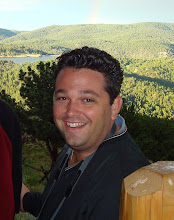Nathan
Your post stirs a lot of questions and observations
within me. It is so true that Christianity is
grounded in the transforming newness of the power of
the Resurrection of Jesus experienced in life in the
here and now. Transformation is usually understood as
dramatic total and sudden. But sometimes it is slow, a
very slow process. You should think of tying this
into your understanding of creation from chaos, chaos
(death, 3-days in the tomb) precedes creation or new
creation. And very often, chaos starts to take form
through conflict (a theme you mention later). If you
think of slow transformation and the way to th slow
transformation of people, then perhaps you can link
this to your emphasis on relationships and relational
reality. If that is the case then your observations
on character and who we are–followers of Jesus– is all
the more important.
I think this metaphor explains it best, your list is
like the list one may assemble before going out to buy
a house. It is a wonderful list, but I still can’t
see the house. Don’t get me wrong. Writing the list as
an excellent first step. It is a step more of us need
to make. It will also be interesting to see what you
list looks like in 10 or 20 years from now. You need
to take the next step. Draw the picture. Give us your
vision. Make us see it. This goes along nicely with
what you have said about prophetic ministry. The
reason I bring this up is that the Prophets were first
called SEERS. They saw something, the Vision, and
they tried to get us to see it too. This is what
turned them into tellers, forth-tellers, or as you
say, “story tellers.” But they could only tell the
story of something they had seen and heard. They were
witnesses to what had happened to them. Thus we are
back to you final observation of knowing Jesus. We
cannot witness to that which we have not witnessed
personally and intimately!
So while I am going to affirm that the main thing is
the Vision. I am also going to say that the Vision
cannot be manufactured. It has to be given. Perhaps
the most we can do is open our eyes and look. Thus
perhaps transforming leadership can be defined as
helping us and others to open their eyes and see.
Perhaps the only way to do that is to tell the story
in words and in deeds. Thus, I can affirm your
understanding of yourself as “lead story teller.” I
guess what I would ask you to do is turn the “talking
points” you have listed into a story, into a
narrative, a witness to things seen and heard
concretely. This would make your work powerful. (Note
the way you tell stories in your following post “The
Reason for our Hope”). Where I would suggest you to
do more study is the area of narratology. You are
telling a story, a story which is a metanarrative that
will change the world. While I might agree with the
metanarrative, Post-modernism is skeptical of there
being metanarratives. They acknowledge local (smaller)
narratives. So I would welcome your working on what
is paradoxically a possible solution and significant
problem.
Your list makes me think of something else. It makes
me think of wisdom. On one level this sounds like a
list of stories that someone might tell as the sum of
what one has learned over years of ministry (compare
this with Robert Fulghum’s “ All I Really Need To Know
I Learned In Kindergarten” list and the stories which
go along with it). Thus, as a reader I want to hear
the stories, the fruits of a lifetime. While “wisdom”
is often thought of as the enlightenment we finally
receive after decades of experience, paradoxically
wisdom is also that which we seek when we are
beginning to build our lives/vocations. [Note that
much of wisdom literature is set up as advice from an
elder to a younger (see the book of Proverbs has a lot
of advice from a father to his son)]. What your list
reminds me of is the need for the dynamic exchange
between the generations... the need for mentoring (in
your words coaching) relationships and how these
exchanges can help both generations to sharpen their
lists. I think that wisdom may also be a very useful
category in the Post-modern context where the past
cannot just be recapitulated but where insights
(wisdom) is needed.
These are my preliminary musings on your post. Keep
up the good work.
Wray
22 May 2006
A Professors Response to: "Transforming People and Communities: The Work and Art of Pastoral Leaders"
My friend and mentor, Wray Bryant, Ph.D., professor of religion at Capital University, Columbus, Ohio, has graciously taken the time to really interact with my piece on the transformation of people and communities. Unfortunately his text was of greater depth and length than the response space that was allowed. So I'm posting it as a blog because I believe there is incredible wisdom and insight in his interaction, and a solid and helpful critique of my musings. I offer it to you all for a deepening of the conversation...
Subscribe to:
Post Comments (Atom)

No comments:
Post a Comment